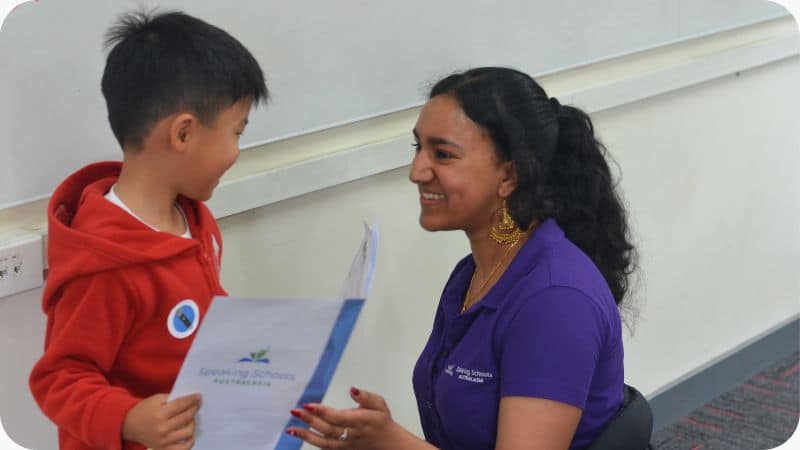How to Help Your Child Become a Better Public Speaker
17 November 2022
Do you have a child who is nervous about speaking in public? Do you wish you could help them feel more confident and less anxious when they have to give a presentation or speak in front of a group?
It can be hard to figure out how to help your child be a better public speaker. Fear not! As experts in teaching public speaking and presentation skills to children, we are perfectly placed to help you help your child reach their full potential as a speaker.
In this blog post, we will discuss some tips that you can use to help your child become a better public speaker. We will also provide information on our wide range of public speaking courses for kids, which can be very helpful in boosting confidence and improving communication skills.

Help your child prepare for their speech by rehearsing it with them and providing feedback
If your child is getting ready to give a speech, there are a few things you can do to help them prepare. First, practice with them. Practice is a huge component of public speaking. Sometimes, the biggest skill difference between children of a young age presenting their speeches in class simply comes from the amount of supportive practice each child has had in the lead-up to the presentation. Regular practice increases self-esteem, reduces anxiety, and can help children to build confidence in their public speaking abilities.
Go over the speech together, and help them identify any areas where they may need more practice. You can also provide feedback on their delivery, and offer suggestions on how they can improve. This is a great way to teach public speaking skills like eye contact, how to stand, and how to speak with enough volume. Lots of communication skills are built through repetition. As a parent, you are uniquely placed to give your child an opportunity to pause and restart their speech with a greater emphasis on clarity or their level of enthusiasm – whatever it is they need to work on!
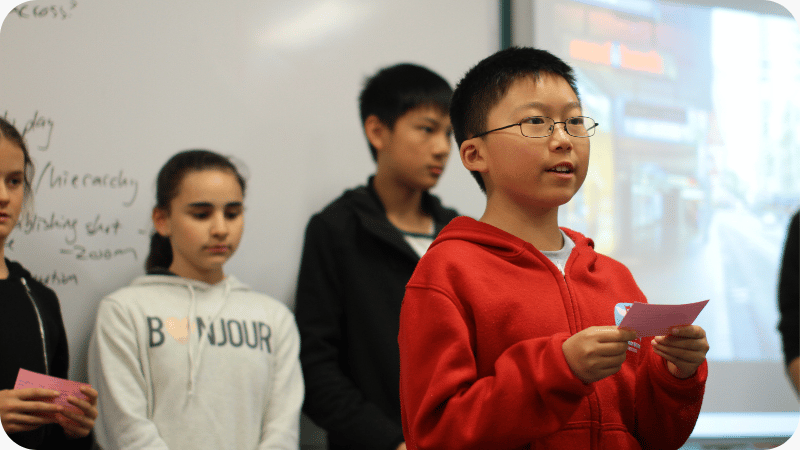
Give positive feedback to your child each time they finish speaking
Whenever your child finishes a run-through of their speech, be sure to give them positive feedback. This will help to encourage and motivate them to continue practising their public speaking skills. Let them know what they did well and offer constructive criticism for areas that need improvement. With your support, they will be able to build their confidence and become a more successful public speaker.
Every great presentation has a lot of work that goes on behind the scenes. For kids, in particular, parents and family play a huge role in this preparation. Making the time to listen to your child speak can help them develop into a great public speaker. After all, the importance of having fun and building up your ability before the big day of a speech cannot be understated. Parents who listen carefully to their children and help them to prepare can make a world of difference to their child’s experience of public speaking, and turn it into a joy rather than a lifelong fear.
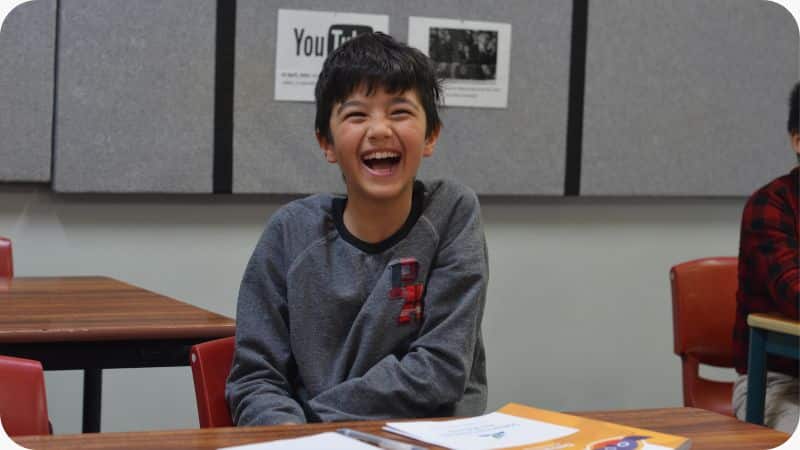
Encourage them to get involved in extracurricular activities that will help improve their public speaking skills
If your child is shy or introverted, you may be concerned about their public speaking skills. Luckily, there are some great extracurricular activities that can help kids improve their confidence and build up their ability to speak in front of a group. One option is to enroll them in public speaking courses for kids. These classes can teach them essential skills like how to project their voice, make eye contact, and use gestures effectively.
In addition, public speaking courses for kids provide them with the opportunity to practice in front of their peers in smaller groups than they would experience at school, which can help build their confidence. Additionally, exposing children to a teacher who is a great public speaker can be very helpful in showing them what good communication skills look like.

Most people never take the time to learn the vital skill of how to give a good presentation, so whether you get them involved at an early age or select a course for older children, public speaking courses are a great way to give kids a head start and will allow them to learn this vital skill early.
Outside of formal classes, there are also plenty of opportunities for public speaking practice for kids. For example, they could give a presentation at school, join a debate team, or even just participate in group discussions more often. By encouraging your child to get involved in extracurricular activities that involve public speaking, you can help them develop the skills they need to be successful in any presentation in the future. Make the time to talk with your child about how they found these experiences. Try asking your child what their favourite part of sharing their opinion with other people is. This can help them to focus on the rewards of public speaking and to see the fun in it rather than remaining overly focused on their nervousness.
There are many extracurricular activities that can help kids improve their public speaking skills, from intensive holiday programs to weekly after-school classes. If your child is interested in public speaking, encourage them to get involved in one of these activities. These courses and clubs will give them the opportunity to practice their public speaking skills in a safe and supportive environment designed specially to teach public speaking skills to kids and to help them build confidence. In addition, they will also learn how to handle nerves, project confidence, and engage an audience. With some practice, your child will be giving speeches like a pro in no time!
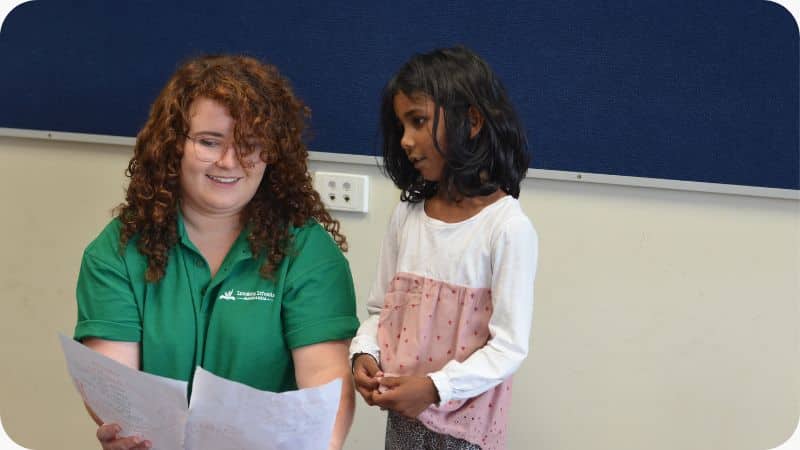
Teach them how to use proper body language when giving a speech
Anyone who has ever given a speech knows that proper body language is just as important as the words you say. Good posture, expressive hand gestures, and natural movement can help to engage your audience and convey your message more effectively. On the other hand, stiff body language can make you appear nervous and unenthusiastic, which can quickly lose the attention of your listeners. When teaching your child how to give a speech, it is therefore important to emphasise the importance of good body language. Help them to understand how posture, gestures, and movement can affect the way their message is received. Encourage them to practice in front of a mirror or with friends so that they can see how their body language affects their speech. With a little practice, they will be able to use body language effectively to engage and inspire their audiences.
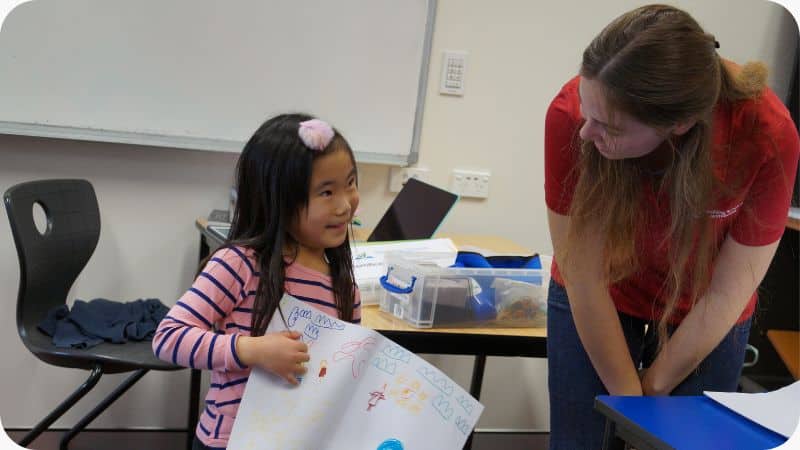
Help them stay calm and focused before and during their speech
Public speaking can be a nerve-wracking experience, but there are several techniques that students can use to stay calm and focused before and during their speech. First, it’s important to take some deep breaths and relax the body. Then, try to get them to focus on the positive aspects of the situation: the audience wants to hear what you have to say, and this is an opportunity to share your knowledge and ideas. It can also be helpful to tell your child to focus on one person in the audience and imagine that they’re having a conversation with them. Finally, remind them that everyone makes mistakes; if they do make a mistake, they can just correct themselves and move on. By using these techniques, they’ll be able to stay calm and focused during their speech, no matter what nerves may arise.
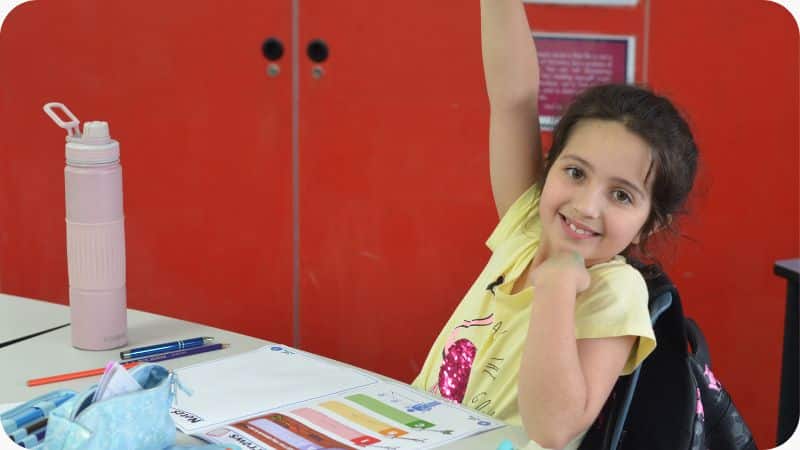
Giving a speech can be nerve-wracking, but it doesn’t have to be. With the right preparation and guidance, your child can give speeches that are confident, articulate, and engaging. If you want help preparing your child for their next public speaking opportunity, look into booking a program with us. We hope that the next time you speak to your child about public speaking, you feel confident that you can help them to become a better speaker.



